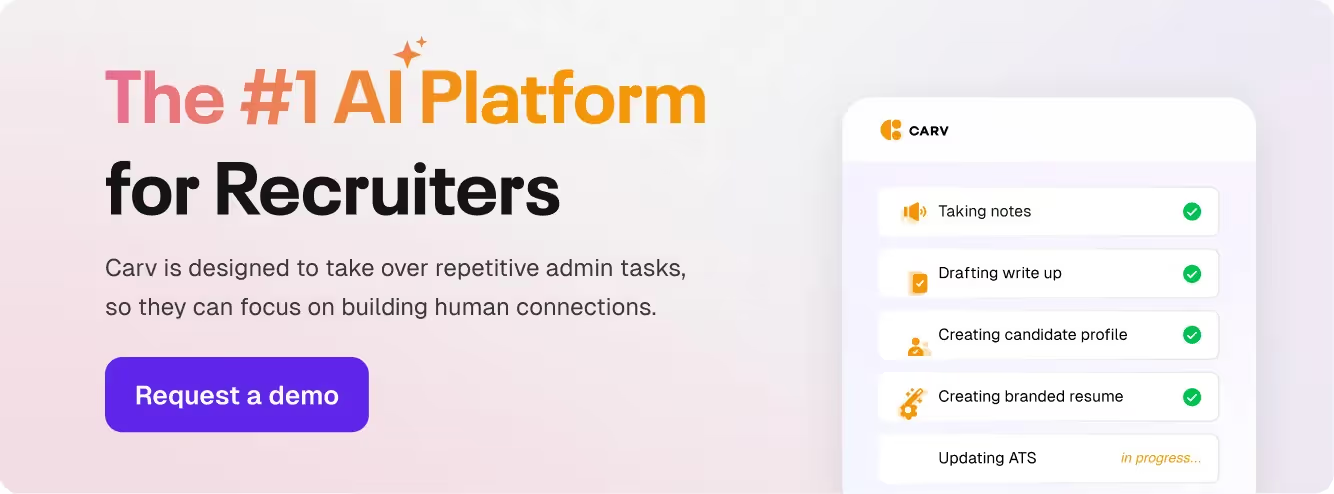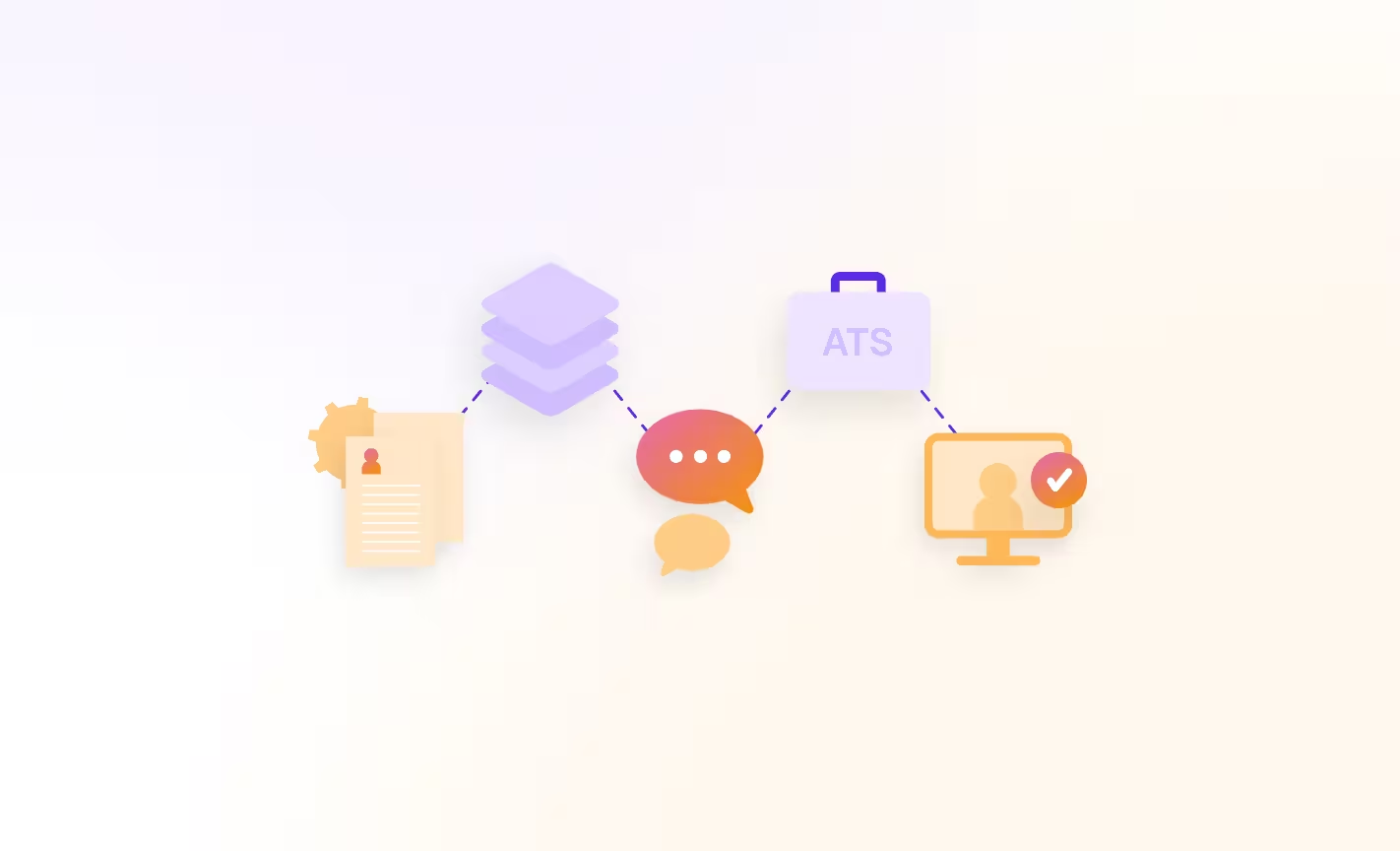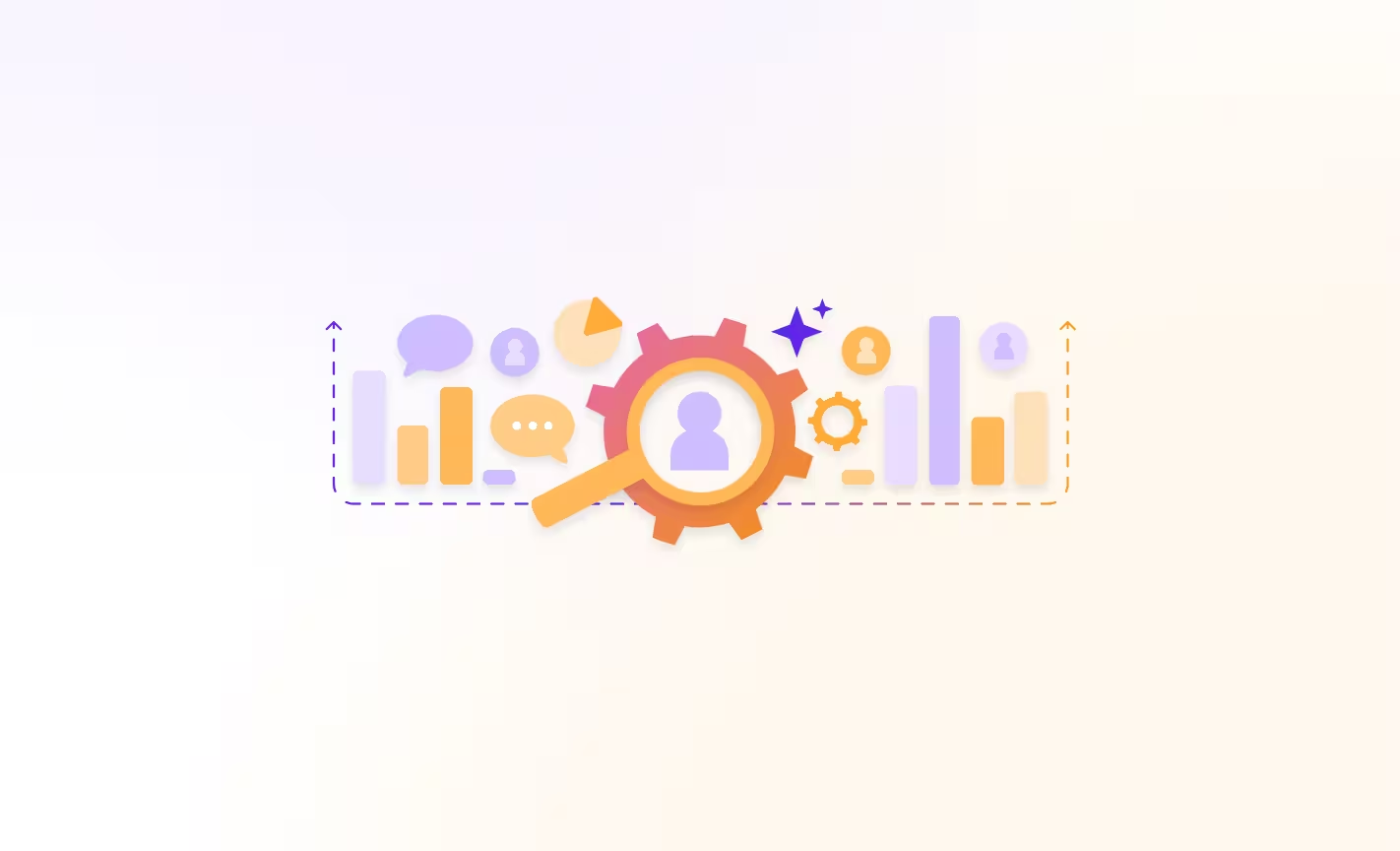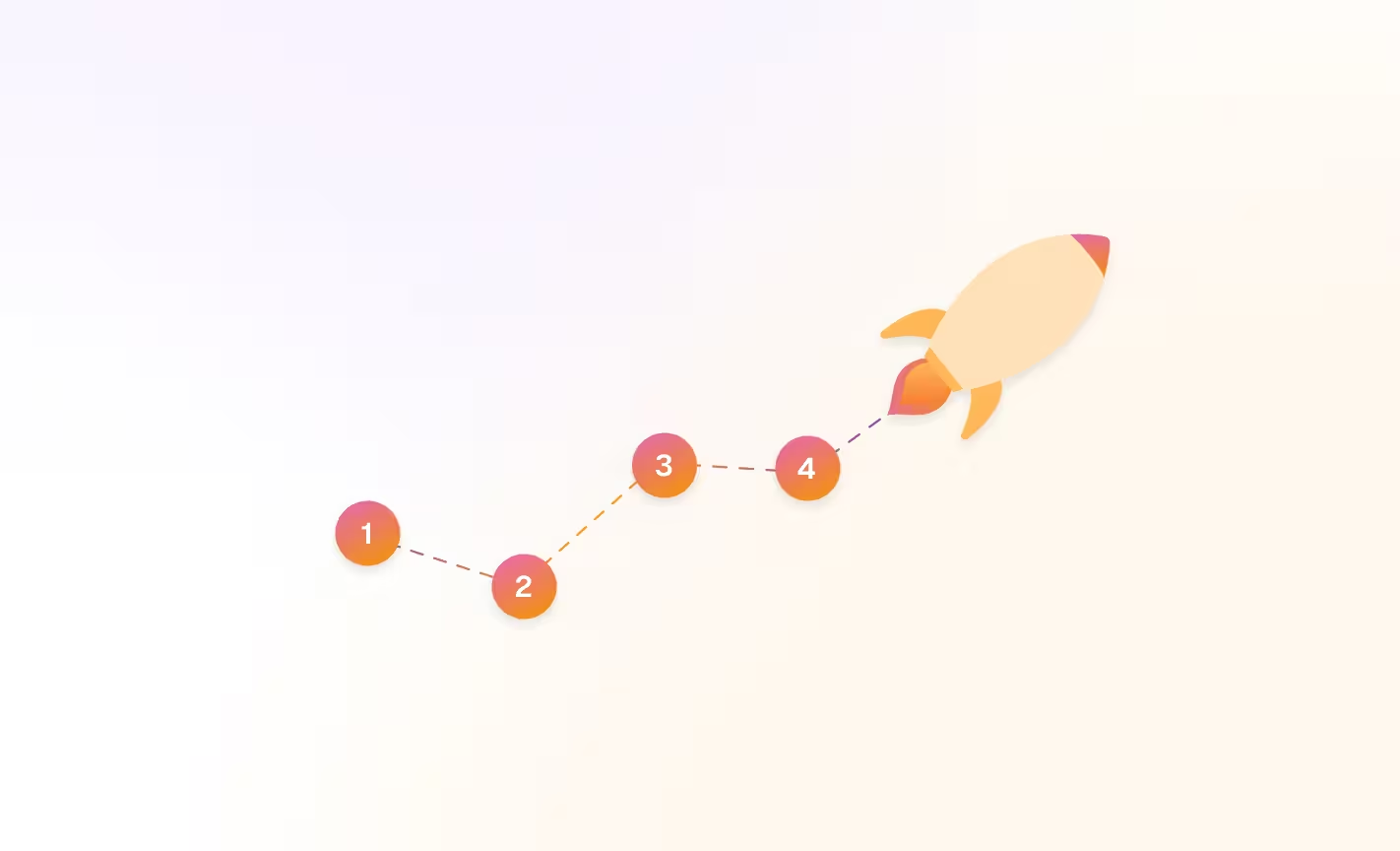Navigating recruitment today can feel like a constant battle against talent shortages and administrative burnout. But while the challenges seem to be mounting, AI-powered tools are swooping in to turn these daily headaches into competitive advantages that can drive real revenue growth.
Recruiters face immense pressure right now. They’re competing for clients, managing fluctuating markets, and struggling to find top talent in scarcity-prone skill areas. These days, it can feel like your talent acquisition strategy is more focused on constantly putting out fires rather than proactively growing your business.
But here’s the good news. AI-powered tools are helping recruitment teams turn these daily headaches into competitive advantages. They’re driving revenue growth by tackling some of the biggest staffing challenges today.
Here are five ways artificial intelligence can help your team overcome major obstacles in the staffing industry right now.
1. Automating administrative tasks
When the recruitment market is this competitive, you need your recruiters to act fast. But when demand keeps fluctuating, you can’t afford to hire more of them one week, then have them twiddling their thumbs with no jobs the next.
By automating routine tasks and streamlining workflows, AI can effectively multiply your recruitment team's manpower. That way, your team can deal with high demand when it comes their way, without the risk of burnout.
Here are just a few of the most time-consuming administrative tasks that AI tools can handle for recruiters:
- Writing job descriptions - AI systems like Carv can use the recording of your intake calls with hiring managers and automatically generate job descriptions. Unlike humans, AI technology doesn’t “forget” details, so your JDs stay on point.
- Pre-screening - AI can help in two ways: by handling the resume screening phase, and by qualifying candidates through text messages or voice calls. Conversational AI technology is advanced enough that candidates forget they’re talking to a chatbot and not a human, so the candidate experience doesn’t suffer.
- Interview scheduling - Instead of wasting hours on back-and-forth communication, AI tools can sync with your recruiters’ and hiring managers’ calendars to automatically schedule interviews with shortlisted candidates.
- Taking interview notes and creating candidate summaries - AI can also handle all the admin related to interviews. For example, tools like Carv can take notes during face-to-face, phone, or video interviews, and create candidate write-ups at the end, to speed up decision-making.
- Updating the ATS - Finally, AI solutions can automatically update the ATS after every candidate interaction, automating this part of the process to keep the hiring process moving and ensure no candidate falls through the cracks.
Instead of drowning in repetitive tasks, this use of AI ensures your recruiters are free to focus on those tasks that actually require human touch, like building client relationships, ensuring a good candidate experience, and making the placements that drive your firm's growth.
2. Improving team performance
AI-driven technology can also give you invaluable insights into your team’s performance and how it might be improved.
Interview AI tools can analyze patterns in your conversations and ATS data – who's converting initial calls to client meetings at the highest rate, which recruiters consistently hit their placement targets, and whose candidate sourcing and engagement strategies are actually converting into long-term hires.
This real-time transparency can help prevent bottlenecks and spot upskill needs before they become a problem. Not only this, but AI can also spot revenue opportunities you'd never catch on your own.
For example, maybe it notices that Jennifer's placement rate doubles when she focuses on contract-to-hire positions, or that David's billing rate skyrockets when he's working with clients in the healthcare sector.
These insights become your secret weapon for optimizing team output and maximizing each recruiter's earning potential.
And your recruiters will actually enjoy the transparency too. Instead of feeling like their hard work goes unnoticed, they get real-time feedback on what's driving their commission checks and support when they actually need it.
When everyone can see exactly how their daily activities translate to placements and fees, motivation and job satisfaction naturally follow – and so do your profit margins.
3. Enhancing candidate quality
The average applications per job have increased 286% in 2025 compared to 2023.
But unfortunately, this doesn’t always translate to interviews and hires. On the contrary, a massive 85% of recruiters say candidate quality is a serious challenge for them right now.
This growth in applicant numbers makes your recruiters’ job a whole lot more difficult, as they have more applicants to sift through than ever to find the candidates worth speaking to.
AI recruitment technology can support in evaluating large volumes of candidates with the precision of your most experienced recruiter.
Instead of just matching candidates to jobs using skills keywords – as traditional recruitment software would do – AI algorithms can surface top candidates by using the full context of all the interactions they’ve had with your team.
Using machine learning, AI can scan through hundreds of applications in seconds to identify transferable skills that humans can easily overlook, and even assess communication styles that predict good cultural alignment.
AI can also identify candidates who have the potential to excel in a role even when they don’t meet every requirement. It recognizes when someone's career trajectory suggests they're a fast learner, or when their experience in a different industry could actually translate well to your role even if they barely tick half the job requirement boxes.
The result of AI talent matching is that you’re able to find higher quality talent faster, and you’re no longer just filling positions for your clients, but making placements that really stick long term.
And of course, we all know higher retention rates mean happier clients, better relationships, and more repeat business.
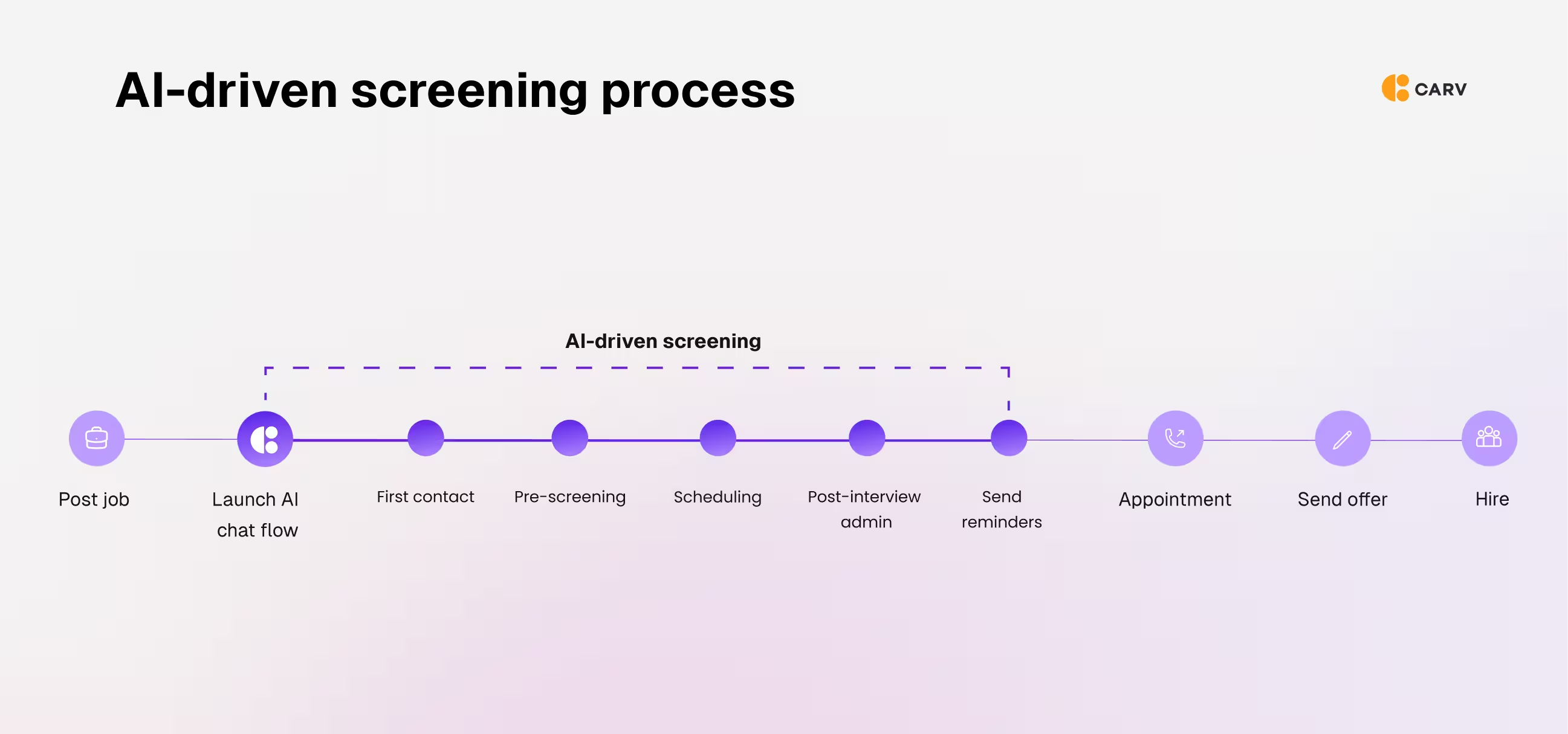
4. Accelerating hiring processes
Slow hiring cycles are still the number one reason employers miss out on great candidates. With so much competition fighting for the same applicants you need to move quickly to scoop up top talent before another agency does.
As shown above, AI can help optimize recruitment workflows, reduce time-to-fill rates, and remove bottlenecks that get in the way of hiring the best candidates.
And it does this by automating the administrative tasks that slow down the hiring process, as well as providing real-time visibility into your hiring pipelines so you can speed up decision-making.
On top of this, AI-powered communication ensures good candidate engagement throughout the process. No more losing great placements to competitors because your team was too busy to return calls promptly.
The numbers speak volumes: Companies using AI-powered workflows are already cutting their time-to-placement by as much as 50% while actually improving their fill rates.
5. Protecting and improving your margins
Margins are everything in the staffing industry. It’s not just about making placements – it’s about making profitable placements. And in a market where client expectations are high and fees are under pressure, that’s a constant balancing act.
AI helps protect your margins in a few key ways:
- Increased recruiter productivity means your team can handle more reqs without needing to scale headcount.
- Faster placements reduce time-to-revenue and keep your clients happy – reducing the risk of renegotiated fees or lost accounts.
- Better candidate matching means higher retention and fewer costly re-dos.
- Smarter analytics help you understand which roles, industries, or clients generate the best ROI – so you can focus your efforts where margins are strongest.
Instead of throwing more recruiters at the problem or chasing low-margin roles, AI helps you do more with less – without burning out your team or compromising on quality.
Turn challenges into opportunities with AI
AI isn’t some vague future concept anymore – it’s already here, driving real performance gains for staffing agencies that adopt it. And the earlier you start weaving it into your workflows, the sooner you'll see the difference in placements, productivity, and profit.
But this window of competitive advantage won't stay open forever. While your competitors are still manually screening resumes and struggling to adapt to market changes, you have the opportunity to leap ahead through advancements in AI technology.
Your workforce management and human resources teams can use AI for better forecasting and onboarding, in service of your overall strategy. AI can also help you analyze social and Linkedin data to build a stronger talent pool. The key is finding the right AI solutions that support the human element of recruiting, not replace it.
So don't let your competitors capture the market share that should be yours. Request a demo of Carv today and start turning these staffing industry challenges into your biggest competitive advantages by capitalizing on the benefits of AI.
